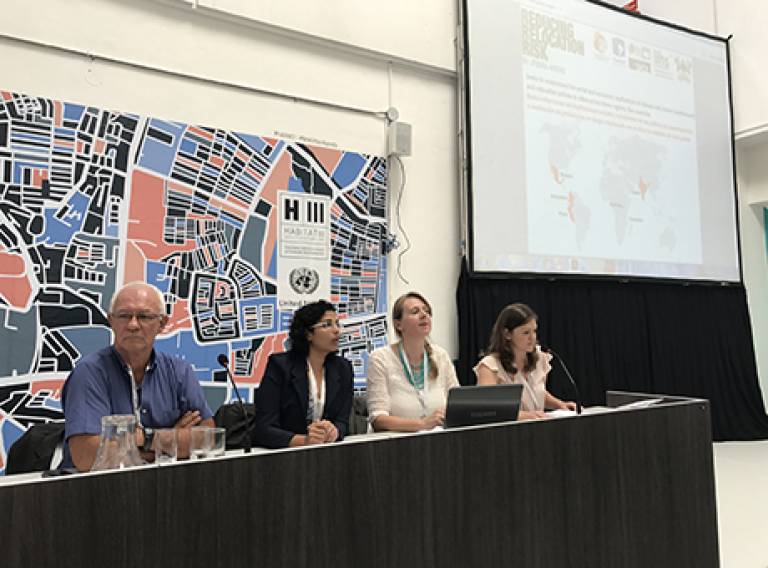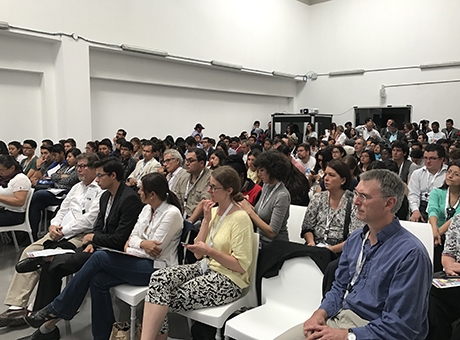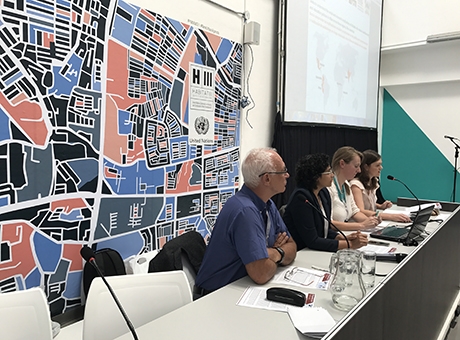Reducing Relocation Risk in Urban Areas Research Shared at Habitat III
18 October 2016

The DPU ongoing collaborative research project ‘Reducing Relocation Risk in Urban Areas’ presented their research findings presented at Habitat III following a two-day workshop in Quito, Ecuador.
The research examines the various social and economic implications of climate-risk related resettlement and relocation policies in cities across three continents. Following a two-year research funded by the Climate and Development Knowledge Network (CDKN) across India, Uganda, Tanzania, Peru, Colombia and Mexico the DPU in partnership with Indian Institute for Human Settlements (IIHS) the Latin American Social Science Faculty (Facultad Latinoamericana de Ciencias Sociales (FLACSO), and Makerere University shared their exciting new research findings at the Habitat III side-event titled ’Reducing Relocation Risk in Urban Areas’ on 17 October.

Relocation & resettlement initiatives (R&R), undertaken by governments and other actors at local, national and international scales, are becoming more widespread as disaster risk reduction strategies in urban areas. However, R&R is highly contested as a result of the variable social and economic outcomes for its subjects. The current paradigm seems to lack recognition of the need to ground R&R programmes within a wider agenda aimed at improving structural and systemic forms of disadvantage and vulnerability.
The Reducing Relocation Risk in Urban Areas event at Habitat III presented exciting findings aimed at dealing with this great problem. The event therefore sought to challenge the view that relocation and resettlement are effective methods of risk reduction. The research instead examines the many ways in which risk is continued and/or new risk created through existing policies and practices, as well as some needed measures to increase their effectiveness for risk reduction in a development framework.
A very packed room attended the event, with Emily Wilkinson (CDKN ODI), Cassidy Johnson (DPU), Garima Jain (IIHS) and Allan Lavell (FLACSO) presenting findings from the cross-regional research and discussing the six recommendations for decision-making and implementation to enable just and sustainable outcomes. The event was enriched by the contributions and insights from SDI Ghana representatives raising attention on the ongoing evictions and demolitions in Lagos.

More details about the project can be found on our and Blog.
You can also follow the project on Twitter: @relocationrisk
 Close
Close

